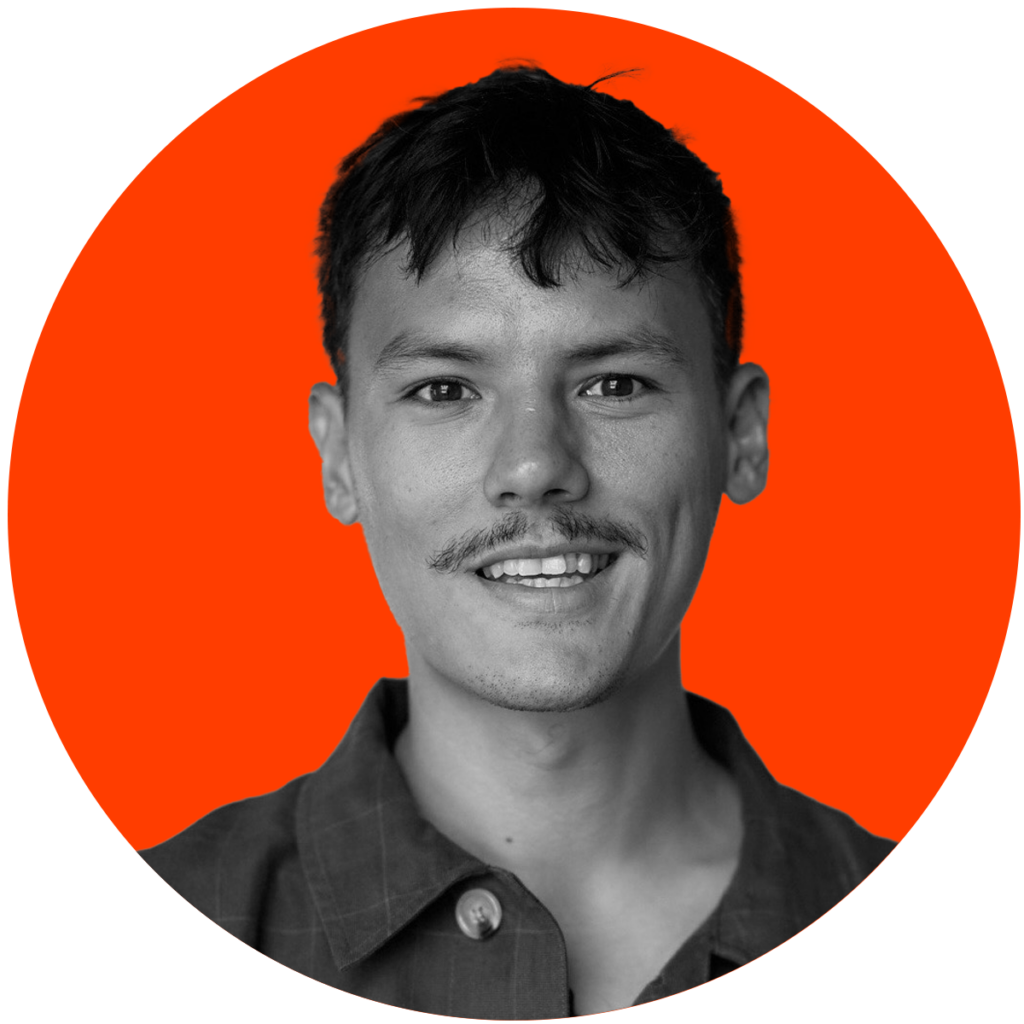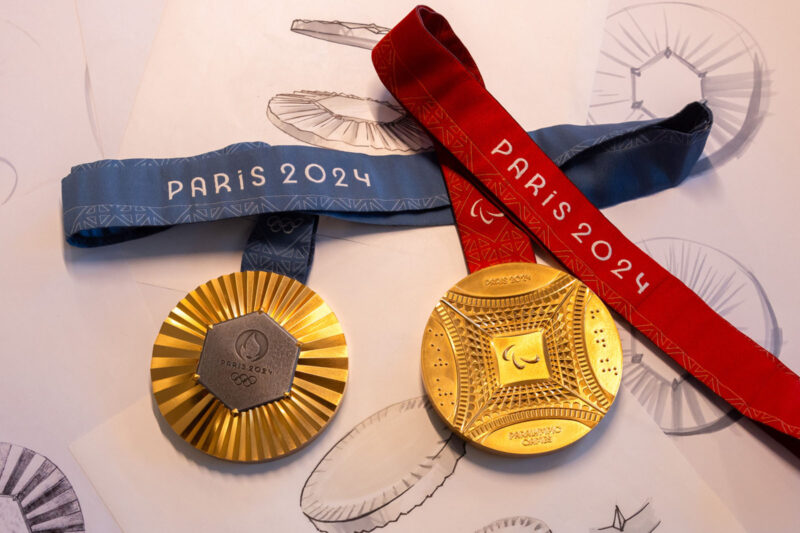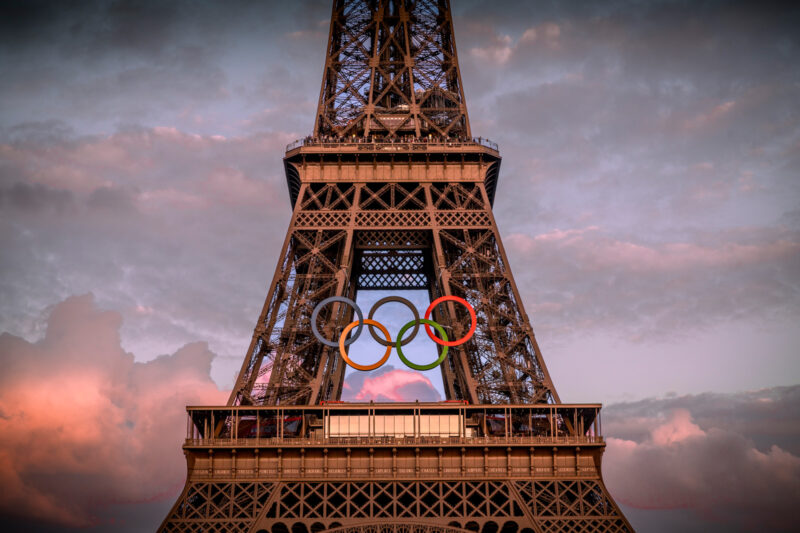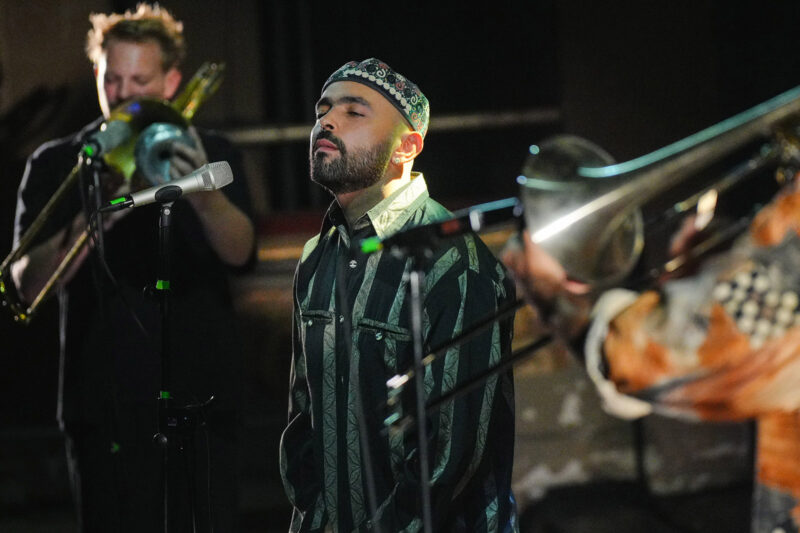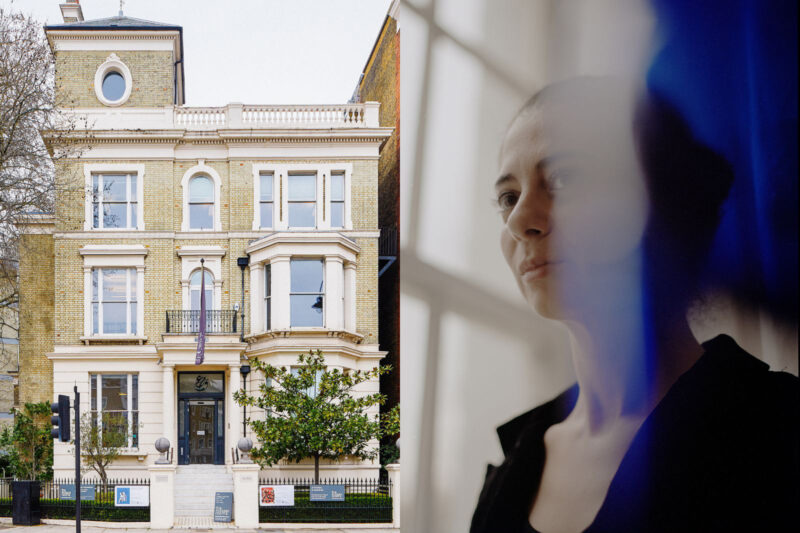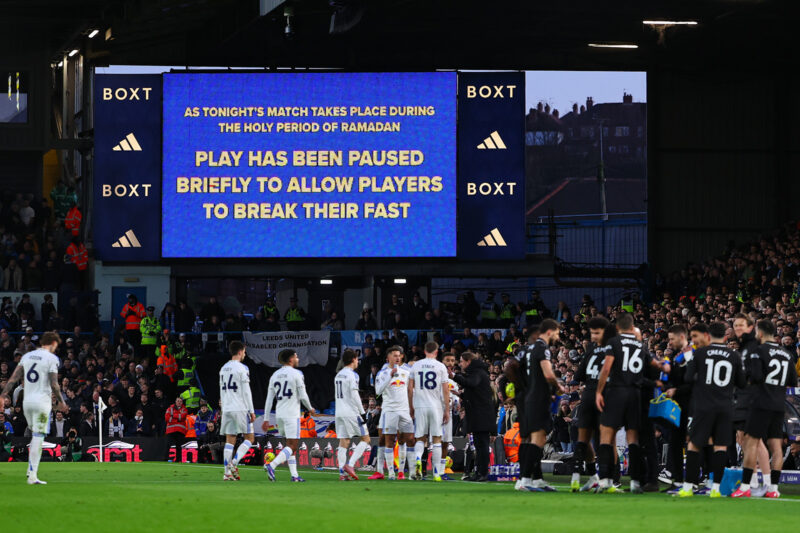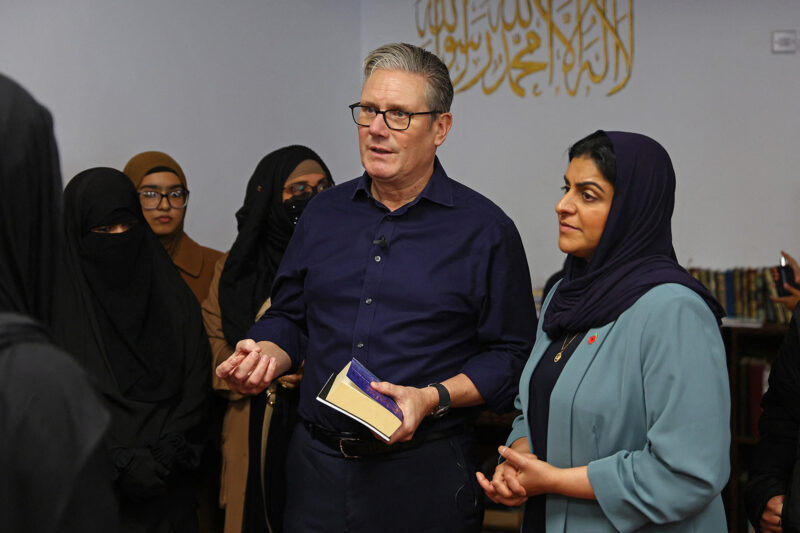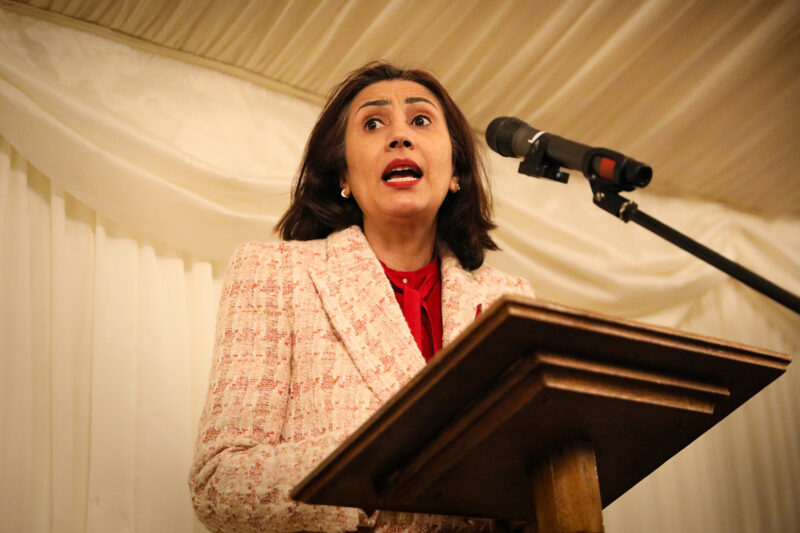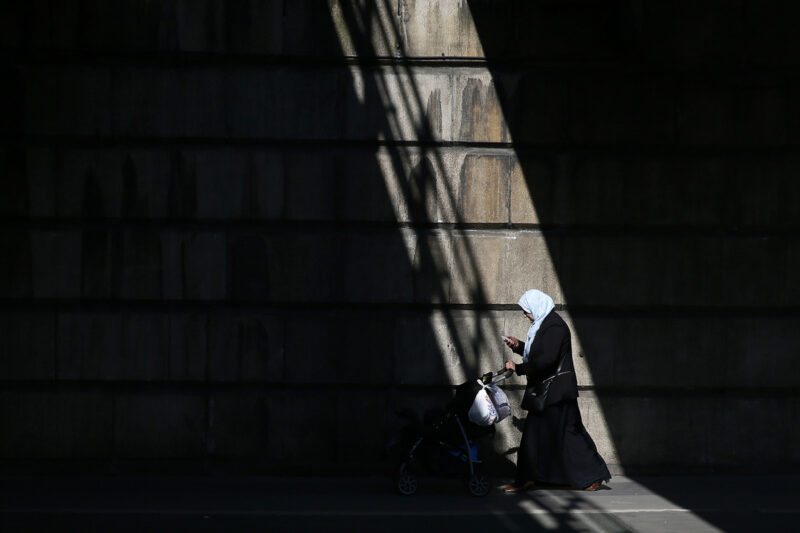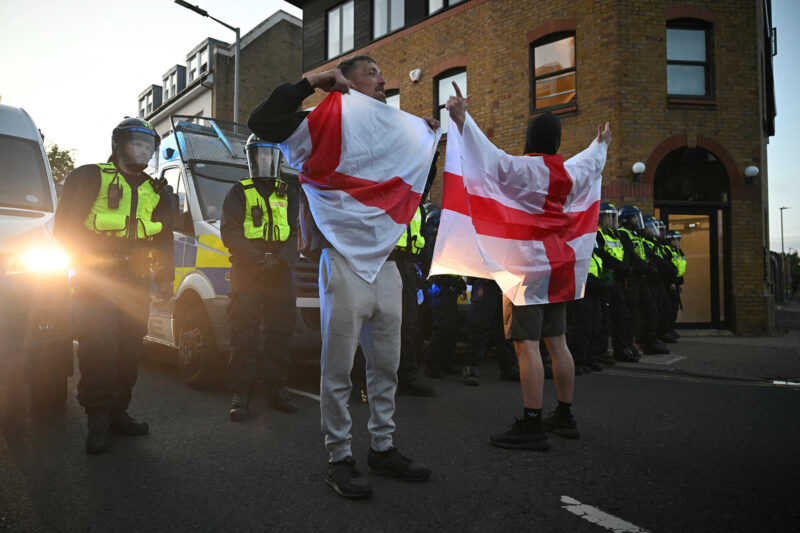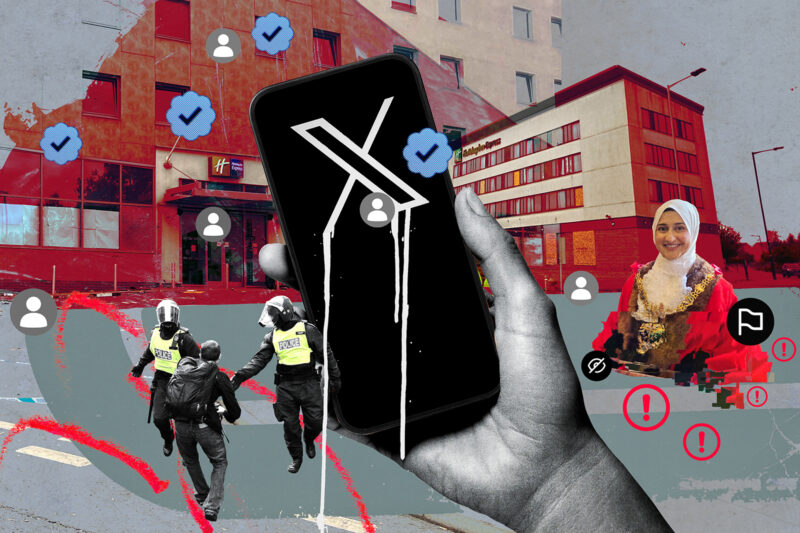Police raids, forced evictions and discrimination — the French Muslim experience of the Paris Olympics
As France congratulates itself on a successful Games, French Muslims say they were unfairly targeted in the government’s efforts to secure the capital
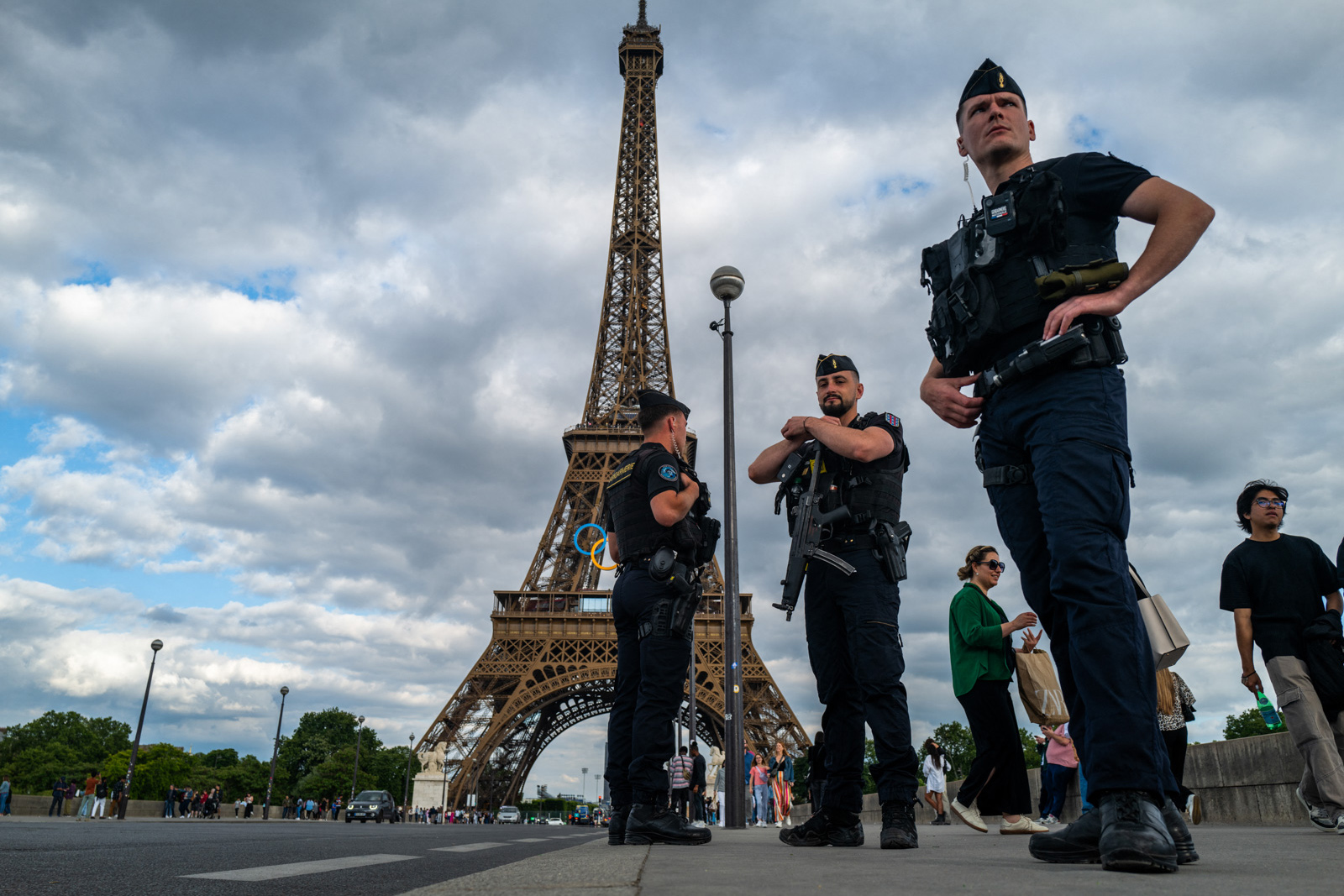
As the 2024 Olympics came to a flamboyant close on 11 August with hundreds of acrobats, dancers and Tom Cruise abseiling from the roof of the Stade de France in the northern Paris suburb of Saint-Denis, the French media celebrated the Games as a huge success. But in the poor, ethnically diverse suburbs surrounding the Olympic stadium, residents and human rights groups say the Games provided a pretext for police operations that unfairly targeted Muslim-majority communities under the guise of protecting the capital from security threats, including terror attacks.
Rayan Freschi, a legal expert and rights activist for CAGE International, an advocacy group working with communities affected by the war on terror, has documented at least 500 raids by French police on Muslim homes in the months leading up to the Paris Olympics, during which armed officers often battered down house doors and searched computers, phones and bookshelves for potentially incriminating material. “They don’t have any prior evidence to do this,” he said. “They call it preventative policing.”
In the days leading up to the opening ceremony on 26 July, more than 75,000 troops were stationed in Paris — the largest peacetime deployment in French history. Freschi believes the security crackdown in its suburbs, however, was a continuation of growing hostility from the French state to its Muslim citizens. “We’ve seen the systematic closure of Muslim nonprofits, schools and mosques by the government in recent years. The Olympics were used to crack down more,” he said.
Ehmad Ibrahim, a 32-year-old resident of Saint-Denis, was targeted in a raid in May. “Police arrived at 6am thumping on the door,” he said. “There was no warning. Normally, people are asleep at this time. But I had been praying so I was awake already.” Ibrahim, a Palestinian Muslim, quickly opened the door but he was hit by officers and knocked to the floor as his wife and daughter hid in a bedroom. “I lifted my hands quickly,” he said. “I know how quickly these things can escalate.”
Officers took Ibrahim’s computer and phone; he still doesn’t know why. He has been legally obliged under the strengthening internal security and the fight against terrorism law (Silt), passed in 2017 by president Emmanuel Macron after the state of emergency was lifted following the 2015 terror attacks, to check in at the police station every morning since the raid — and must continue doing so until at least October. “They use any excuse, if you know someone who knows someone who knows someone,” added Ibrahim, who says he has a clean criminal record. “It’s purely harassment. It’s a show of force. We are really treated like cattle.”
A few days before the Olympics began, a community group called Stop Police Violence Collective — set up after the death of the 20-year-old Yanis, who died in a scooter accident after he was chased by police cars in 2021 — started patrolling Saint-Denis amid fears that an increased police presence could lead to an outbreak of violence and arbitrary arrests.
Jules, a 27-year-old coordinator for the 50-person volunteer team, asked for his name to be changed because he fears talking publicly about the issue could affect his work. “We noticed a significant increase in [police] violence a month or a month and a half ago during the preparation of the Games,” he said. “Police boredom and excess numbers play a big role in the harassment suffered by residents. The Muslim community, which is very present here, is obviously targeted by this abuse.”
The collective’s patrols offer advice to residents about what to do in the event of police searches or arrests, as well as how to contact lawyers. Saint-Denis, like many of Paris’ peripheral suburbs, has a long history of racist police violence. According to the Defender of Rights — an independent French authority tasked with protecting constitutional rights — young men perceived to be black or of North African origin are 20 times more likely to be subjected to police identity checks than the rest of the population.
During a long patrol between Porte de Paris and Front Populaire metro stations, another volunteer explains that parents they speak with are worried about the risk of police violence against their children. Their fear is born from experience. Last year, a 17-year-old French boy of Moroccan and Algerian descent known as Nahel M was shot dead by police in Nanterre, another marginalised Paris suburb.
“I have a son who gets into trouble with the police all the time,” said a 57-year-old man who the patrol passed sitting on a bench. “We older ones are fine, we give our papers, we are used to it.” Fatou, a 50-year-old French-Senegalese volunteer whose brother Lamine Dieng died during a police arrest in 2007, also worries for her daughter, who wears a headscarf — “She suffers discrimination because of being black, veiled, and being a woman”.
Ahead of the Games’ opening, several human rights organisations warned that the discrimination long experienced by France’s Muslim community was being magnified as the country prepared to host the Olympics. CAGE International warned of “alarming levels of Islamophobia and anti-social discrimination” surrounding the Olympics, finding that heightened security measures and surveillance had created a “climate of fear and repression”.
Amnesty International joined CAGE in condemning the French government’s decision to ban French women athletes from competing in headcoverings. “This is occurring against a backdrop [of a] relentless, 20-year campaign of harmful lawmaking and regulation of Muslim women’s and girls’ clothing in France, fuelled by prejudice, racism and gendered Islamophobia,” the organisation wrote in a report published in July.
Others flagged violent forced evictions that were carried out in the years and months prior to the Games to make way for Olympic infrastructure, including the new €188m aquatic centre in Saint-Denis. “[This construction] caused a lot of problems from very early on,” said Shakiba Moghadam, a lecturer at Solent University and an expert in human rights violations in sports. “They displaced marginalised people, those who are socially-excluded, from minority backgrounds. Muslim communities have borne the brunt of this.”
France is estimated to have spent €9bn on these Olympics, but for many Muslims at the heart of the Games in Saint-Denis — a neighbourhood with a 36% rate of poverty that sits outside the symbolic ring road that divides Paris from its suburbs — there have been no meaningful benefits other than a brief boost in income from international visitors. “We’ve lived here for years, we’re suffering,” said Lhou, a 45-year-old Moroccan, sitting in a drab park surrounded by worn-down social housing blocks. “Look around us, there’s nothing. The area is forgotten.”
Asked if he feels included by the Olympics, Barbar Shérif, a 19-year-old student helping his father run a small fruit stand by a Saint-Denis metro station, was clear: “No, I’ve got nothing to do with it.”
For 16 days, the world was gripped by the sporting heroics played out in Paris’ pools and stadiums, but as the Games ended, France returned to a disturbing political reality. After snap legislative elections on 7 July — which saw the far-right National Rally, led by staunch anti-immigrant Jordan Bardella, gain an historic 10 million votes — delivered a hung parliament, the president installed a caretaker government for the duration of the Olympics to avoid “disorder”. With Macron’s political truce now over, the country finds itself back in political deadlock, gripped with uncertainty. “The election results have completely liberated racist acts,” Ibrahim said.
One certainty for the capital’s Muslim residents is that the heightened state of surveillance will continue beyond Paris 2024. Earlier this month, French interior minister Gérald Darmanin said that the “security resources” currently in place in Saint-Denis will remain after the Olympics. The French interior ministry did not respond to a request for comment. “Year by year our liberties decline,” Ibrahim said. “These enormous controls are terrible.”
 Newsletter
Newsletter

